ARLINGTON, Wash., November 22, 2021 — For most Washingtonians, Thanksgiving is the furthest from anyone’s mind in the summer, but for U.S. Air Force veteran and retired Mukilteo Police Officer turned farmer Jeremy Ballinger, that’s when the preparation starts.
Each August Ballinger and his family begin raising hundreds of birds in a way most grocery stores don’t – humanely treated, organically fed, and free-roaming. At Flying Fortress Farm, the Ballinger family-owned farm in Arlington, not only are turkeys allowed to be turkeys – but they are butchered fresh and never frozen, resulting in what many who have had the luxury to try them consider “the best turkeys they’ve ever had.”
“All of the turkeys available in a grocery store are raised in a poultry farm, even the ones labeled free-range or organic. They may have access to the outdoors, but for how long? Nobody knows. And unfortunately, all that goes into labeling a turkey as organic is to feed them organic feed,” Ballinger told the Lynnwood Times.
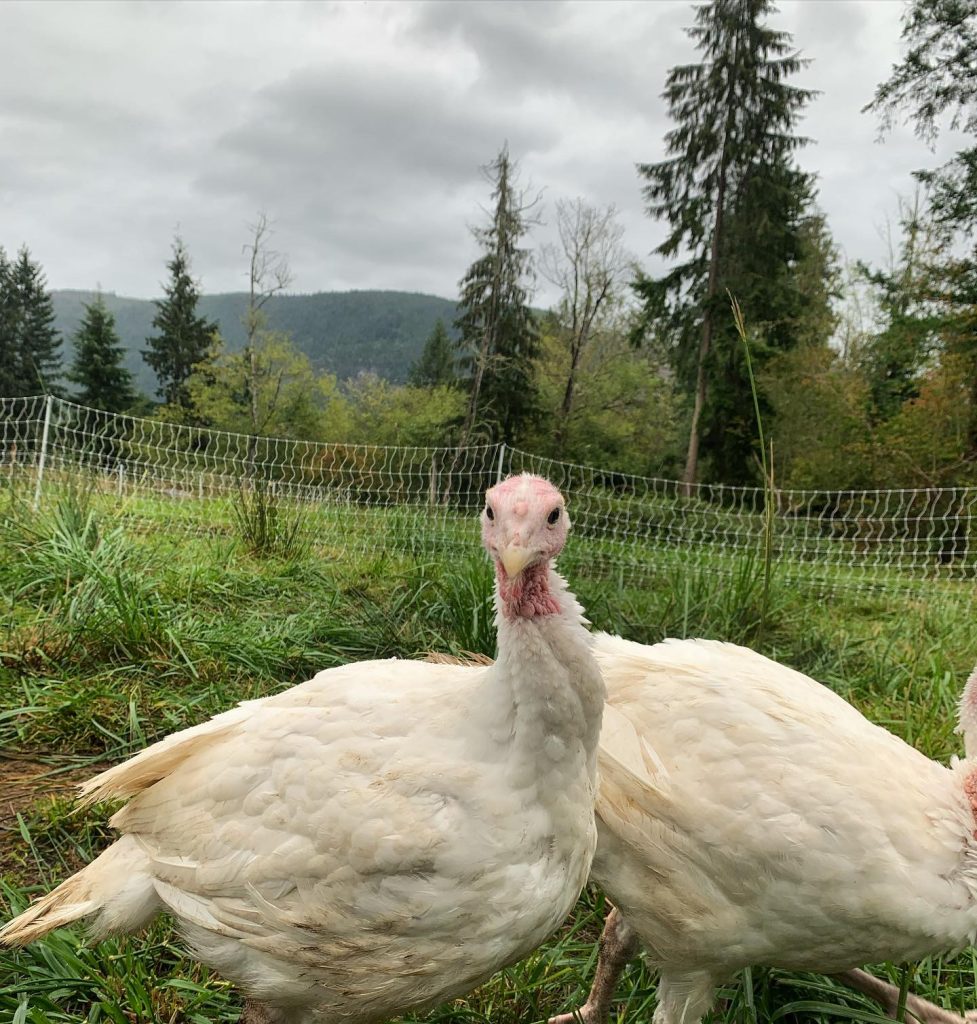
Although no breeding is done on Flying Fortress Farm, Ballinger receives all of his turkeys as poults, keeping them warm in a brooder until their feathers begin to develop. After they’ve matured, they are given the freedom to roam the 5.3-acre land, rotating through patches of fresh grass, eating a certified organic diet, basking in the sun, chasing grasshoppers, and pursuing happiness the best way a turkey can before being processed for meat just days before Thanksgiving. Throughout the turkeys’ lives, the only time they are ever confined is at night to protect them from nocturnal predators.
To Ballinger, there are several benefits to the way he raises turkeys. Not only are his animals treated humanely and given happy lives but pasture-raised poultry has been proven to be more nutrient-dense and better tasting. According to the Food Animal Concerns Trust (FACT), pasture-raised birds have less saturated fats, more heart-healthy polyunsaturated fats, lower ratios of omega-6 to omega-3 polyunsaturated fats, and higher levels of protein and collagen; not to mention, they simply taste better.
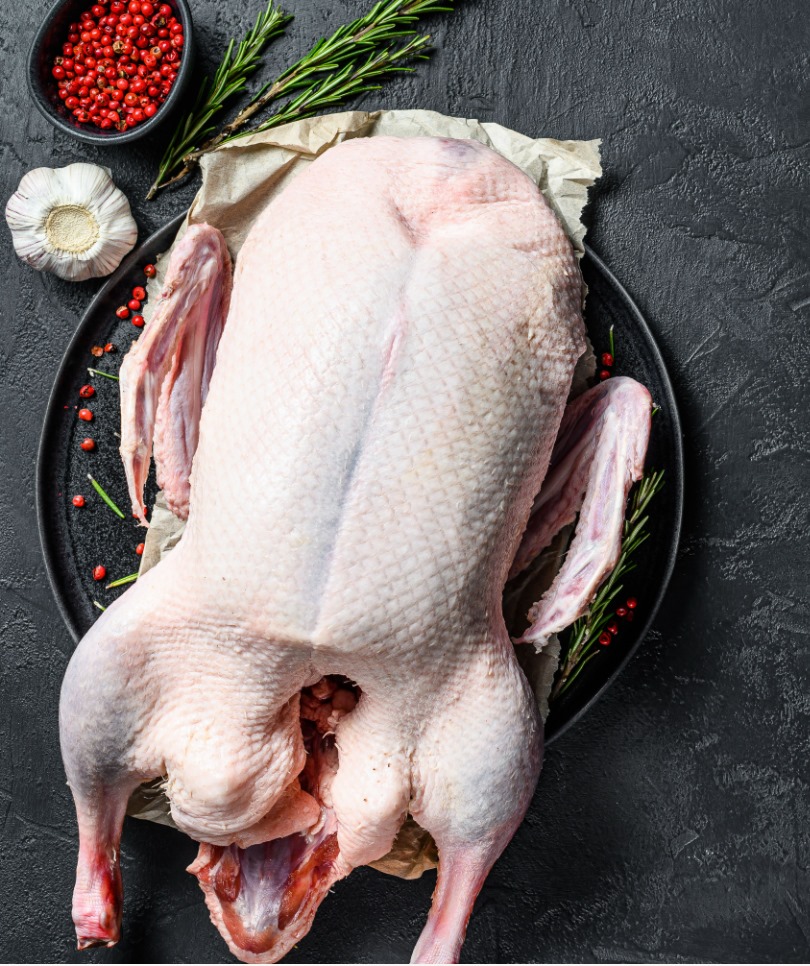
“We consistently get feedback every year saying that our turkeys are the best turkeys they’ve ever had. It’s juicy, it’s fresh, it’s better for us, it’s better for the turkeys, it’s all-around better,” Ballinger said. “Having our turkeys outside, living like turkeys in the Northwest . . . it’s drastically different.”
According to Ballinger, there are many differences between raising chickens and turkeys, namely when it is time for the birds to go to bed, chickens will put themselves in their own shelter. Turkeys, on the other hand, will stay out all night if it weren’t for the Ballinger family spending each night corralling them inside.
“That turkey on your plate – there’s work that goes into it. If you think about it: every single night for about four months we’re going out and putting turkeys to bed,” Ballinger joked.
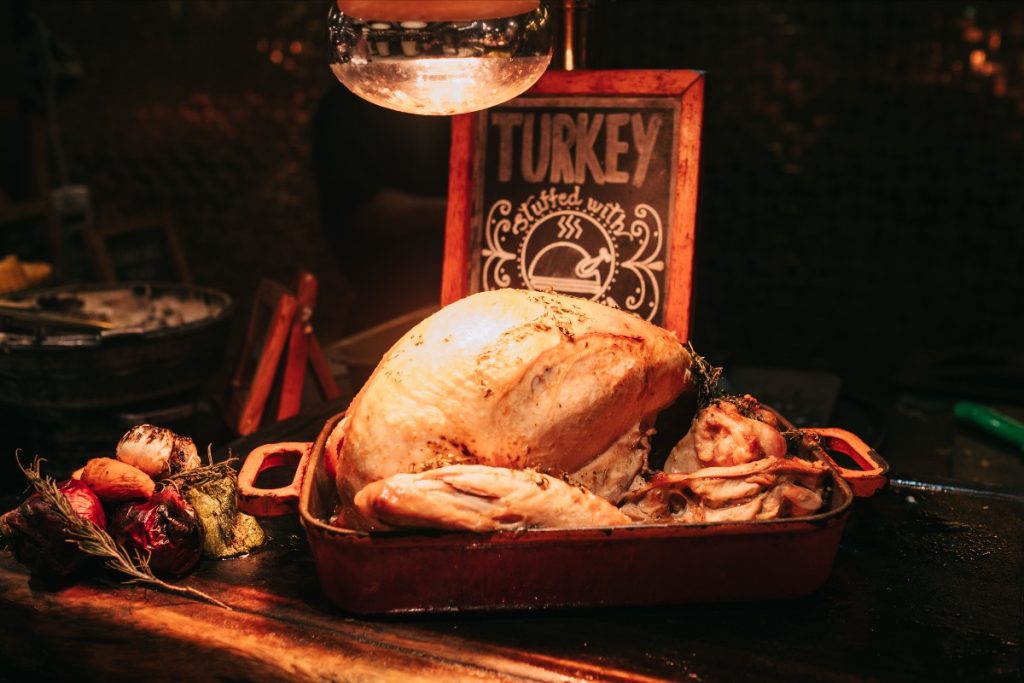
Although Jeremy grew up in the suburbs of Mukilteo, he belonged to a long line of farmers. His grandfather grew up on a farm, his father worked on farms around Kansas and Texas. And while his father eventually settled in Mukilteo, Ballinger says that itch to raise his own food never disappeared.
“He always had really big vegetable gardens every year, and I remember he used to raise quail in our backyard, in the suburbs, that he used to provide meat for us,” Ballinger said.
Jeremy’s parents eventually bought some property outside of Monroe where he began to raise cows and steer to fill the freezer full of beef each year. To Jeremy, seeing this growing up was what inspired him to follow in his father’s footsteps all throughout his 20-year career as a Mukilteo police officer.
“That was what I did in the military, so naturally it’s what I did when I got out, and I thought it would be my career, but I always thought it would be really fun to own a farm – I just didn’t know how it would ever happen,” Ballinger said.
In 2013 Ballinger and his family moved out of the city and bought a house on 3-acres in Granite Falls, playing around with the idea of raising some animals. They purchased some goats and a steer that they raised and butchered for meat. By the time their third child was born, they decided to “double down” and move again to Arlington, the current site of Flying Fortress Farm.
“The property had sat for 20 years, everything was super overgrown, and the house itself was abandoned for the last 10 years before we bought it, so there was a lot of work that had to go in before it was even livable,” Ballinger said.
Ballinger connected with the Farmer Veteran Coalition, a national non-profit based out of California that helps veterans get into farming, providing educational resources, mentoring, and marketing, and was awarded a grant of $5,000 in 2020 that they used to purchase some butchering and processing equipment.
Before purchasing the equipment, the Ballinger family had to transport their birds to a butchering facility, which required appointments a year in advance with little to no flexibility.
“If your birds didn’t grow as fast – too bad – you couldn’t change your butchering date. So we used that grant to purchase some butchering equipment that we got approved by the WSDA to have more flexibility,” Ballinger said.
The new equipment has allowed the farm to open up new avenues, including processing their meat into sausage and even offering holiday eggnog using farm-fresh eggs.
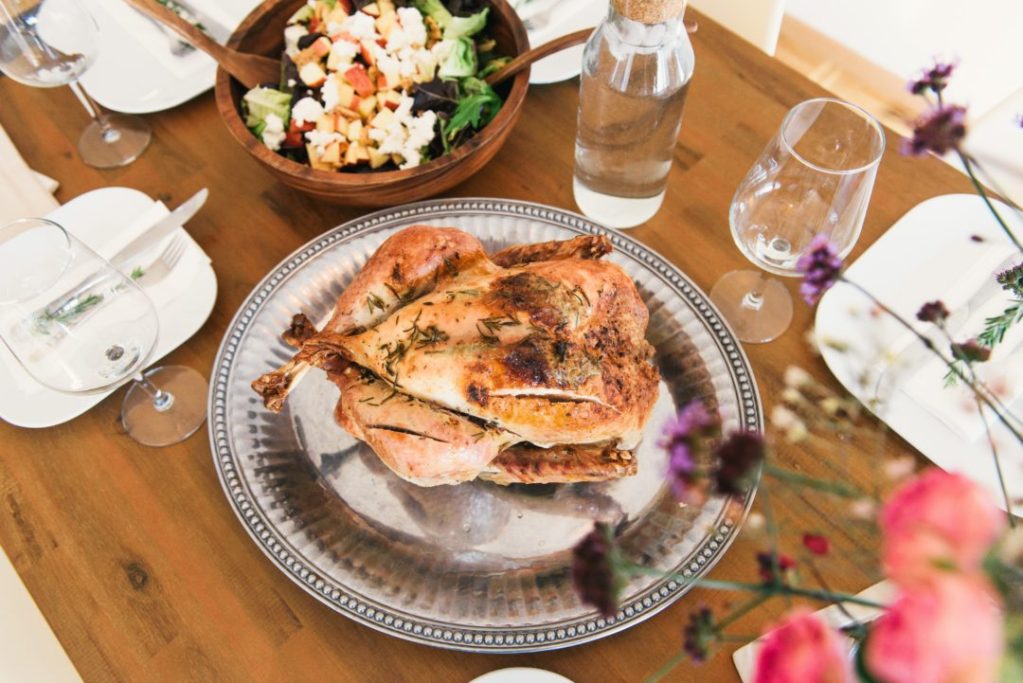
Flying Fortress Farms, named after the World War II B17 Bomber that Jeremy’s grandfather flew, started in 2018 while Ballinger was still working as a full-time police officer. The Ballinger family began by purchasing around 12-14 chickens to have fresh eggs for the family. Later that year, upon learning about the health benefits from eating grass-fed, free-roaming meat, Jeremy decided he wanted to try his luck out with raising chickens for meat. At first he started small, pasture raising about 60 chickens his first year using no additives or chemicals, feeding them an organic diet, and allowing them to have free-roaming, loved, and happy lives. He figured at the very least he could fill his freezer with frozen chicken meat for a year.
“The thought is, back when the B17 Bomber was produced, back in the early 40s, our food was much simpler then. It wasn’t GMO’s or organic or nonorganic – it was just food. And that’s kinda what we want to get back to. It’s just food, it’s just old-fashioned food, there’s nothing weird in it. It’s something that our grandparents would have eaten,” Ballinger told the Lynnwood Times.
According to Ballinger, the meat tasted great and was a huge success. He decided to start raising chickens for farmers markets the following year.
By 2019 the family had bumped their production up to 350 broilers (chickens raised for meat), 50 Thanksgiving turkeys, and 10 pigs, selling the fruits of their labor at the Lake Stevens Farmers Market, The Stanwood Farmers Market, as well as on-site.
“Everything we do is natural. On the pasture, all the animals are rotated out to fresh grass every day,” Ballinger said.
The Ballinger family does this with the use of mobile shelters that are wheeled out to new areas to allow their animals access to fresh grass whenever a plot of land is worn thin. The mobile shelters allow the animals to roam free and remain stimulated while not being confined to a closed-off space. Surrounding these free roam areas are mobile electric fences that protect the animals from predators like coyotes and bald eagles.
At the beginning of 2020, Ballinger began to get burned out from balancing his law enforcement career with his farming hobby, so he presented himself a choice: He could either scale back his farming and focus on his police career, or scale up his farming and quit his job. He chose farming and resigned from public service last year.
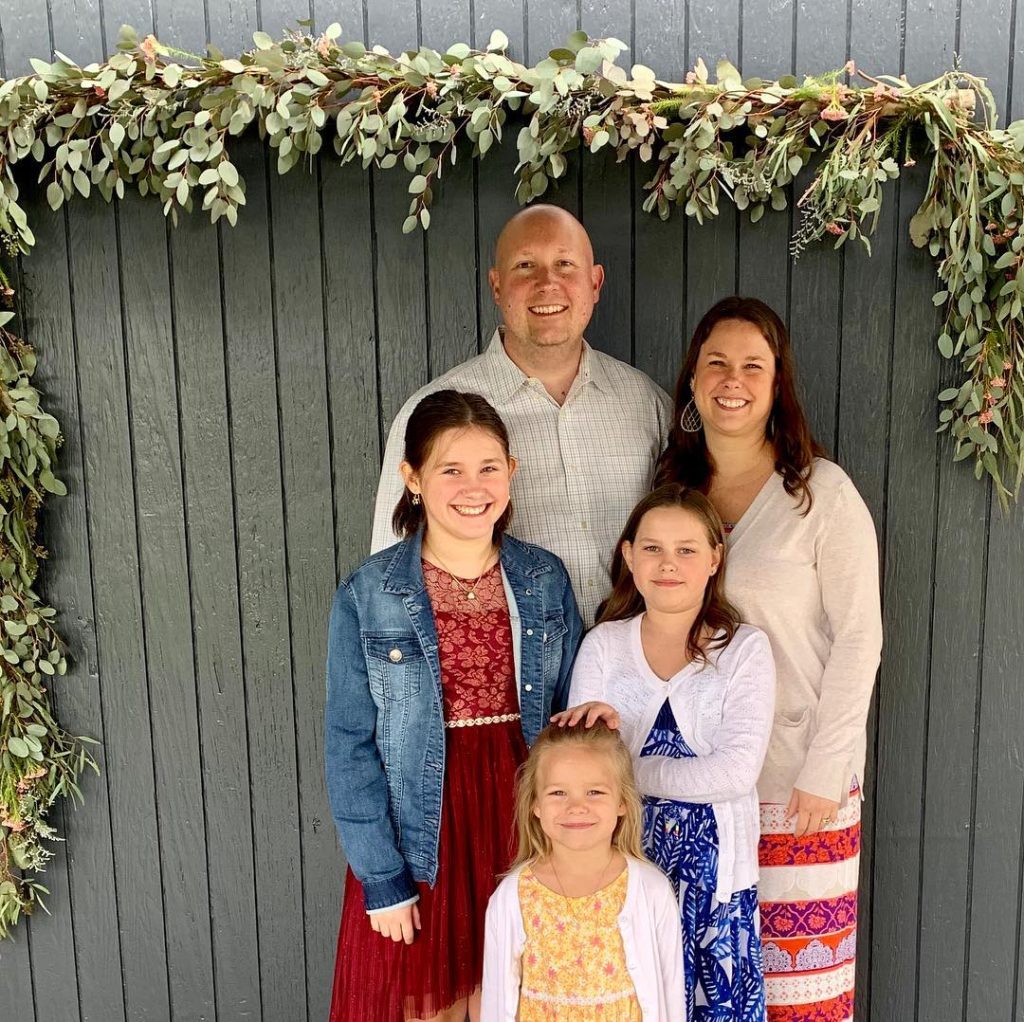
Since then, the Ballinger family doubled their production, raising 750 chickens, 75 Thanksgiving turkeys, 12 pigs, as well as ducks, geese, and rabbits. At their small patch of land, nestled between Mount Pilchuck and the Stillaguamish River, the animals do not simply have access to land – they live in it. At Flying Fortress Farm, their motto is to “give the animals the respect they deserve from the first day at the farm to their last, use only high quality, non-GMO and organic local grains, and never give animals any drugs in the form of vaccines, preventable antibiotics, hormones, or chemical supplements.”
Raising animals this way does not come without obstacles, however. Due to the COVID-19 outbreak, the farm has resorted to online sales, unable to make appearances at local farmers markets. By also committing to 100 percent pasture-raised food, about 10 animals are lost each year due to predators or the harshness of the Washington weather, particularly within the last couple of stormy seasons.
“The benefits of raising them outside far offset the few that we lose to weather or predators. It’s still the way we’re going to do it,” Ballinger said.
If anyone would like to purchase one of Flying Fortress Farm’s farm-to-table, fresh, free roam, humanely treated turkeys, they can do so by reserving one online at https://flyingfortressfarm.com/.
For more information call 425-319-5213 or email jeremy@flyingfortressfarm.com. They can be found on Facebook at @flyingfortressfarm.
Author: Kienan Briscoe













One Response
The article was really informative and well written. It seems to me that I know the author from the COMPACOM expert team. Have always enjoyed reading their detailed useful researches and comparisons. If I have any problems choosing the products I need I turn to compacom.com at once.